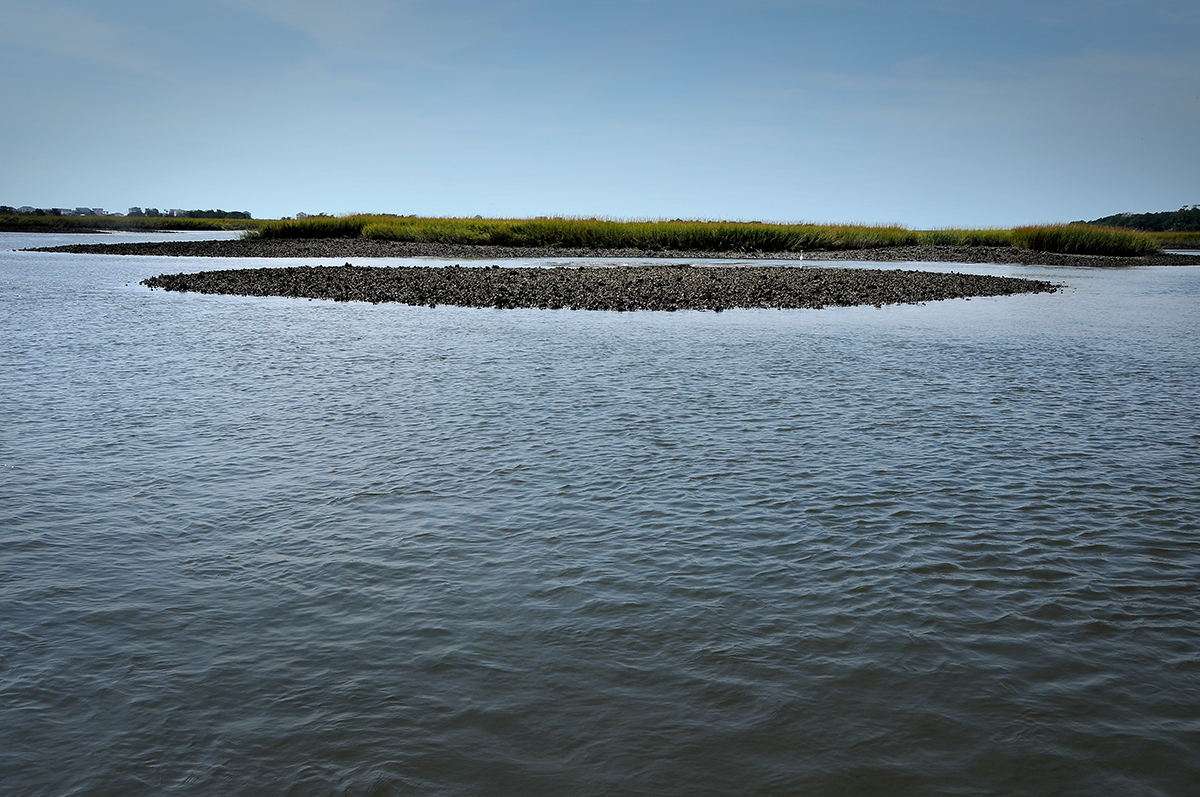Oysters are an integral part of North Carolina’s coastal ecosystem. They provide natural habitats for numerous aquatic species and filter out pollutants, sediment and algae from the waters.
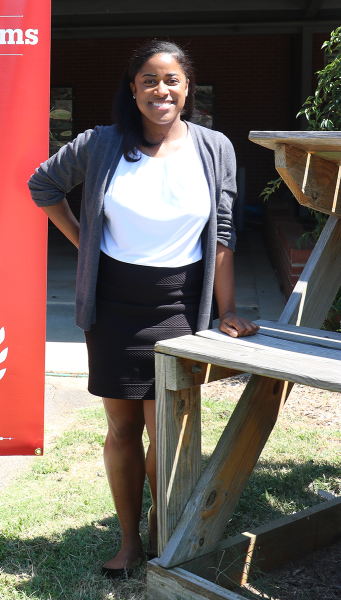
They’re also delicious – if the taste entices your pallet.
Biological and Agricultural Engineering Ph.D. graduate Vashti Campbell recently conducted research inclusive of the state’s ongoing efforts to improve oyster production. A growing demand and consumer preference for raw oyster consumption led her to explore methods that optimized the depuration process for maximum bacterial reduction in live oysters.
The depuration process involves taking oysters from polluted water and placing them into a clean water system to purge themselves of bacteria and other contaminants.
“I was looking at using a novel disinfection method called plasma-activated simulated seawater to enhance depuration for the maximum reduction of bacteria in live oysters,” she explains. “Compared to traditional refrigeration, we were able to significantly reduce the bacteria, so the method could be a promising disinfection mechanism for depuration in the seafood industry.”
In August, she successfully defended her dissertation to become the first Ph.D. graduate in her family, and the first Black female doctoral graduate from the department.
History of North Carolina Oysters
From the earliest documented records, and well over a century of overharvesting, natural disasters, loss of habitat, disease and water quality degradation led to drastic decline in oyster abundance in North Carolina and its neighboring coastal states.
In 2003, a group of partners in government, academia and philanthropy drafted the first Oyster Restoration and Protection Plan for North Carolina: A Blueprint for Action that outlined a detailed set of goals to protect and restore the state’s oyster habitats and fisheries.
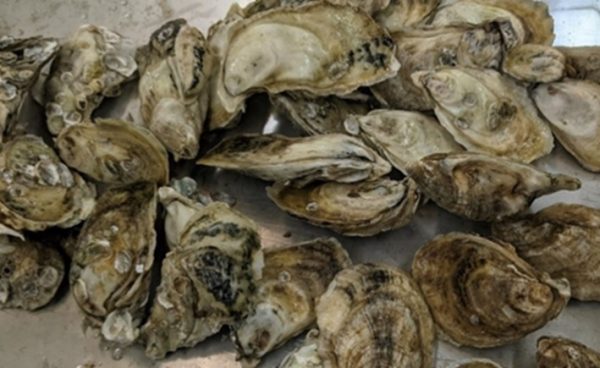
The Blueprint has been evaluated and modified four times with the help of a growing list of more than 25 partners. In almost 20 years, these plans have resulted in restoring nearly 450 acres of oyster habitat, growing the shellfish aquaculture industry from $250,000 to $5 million and increasing the number of farms in the state by tenfold. The most recognizable project associated with this initiative was the oyster shell recycling program that collected 250,000 bushels between 2003-2015.
In 2018, North Carolina became the sixth state to join the National Oceanic and Atmospheric Administration (NOAA) National Shellfish Initiative that aims to increase bivalve shellfish populations through sustainable commercial production and restoration activities.
The most recent Blueprint has a timeline through 2025 and identifies eight strategies that build upon previous efforts to improve native oyster populations, promote sustainable aquaculture practices and identify threats against coastal waters and habitats.
“Oysters are a valuable protein source, but also contribute additional ecosystem services, including enhancing water quality, removing nutrients, sequestering carbon and protecting coastal waters,” says Steve Hall, BAE professor and Extension specialist; and director of the Marine Aquaculture Research Center and Campbell’s dissertation advisor. “Adding value by enhancing food safety can help enhance the value of the overall oyster ecosystem.”
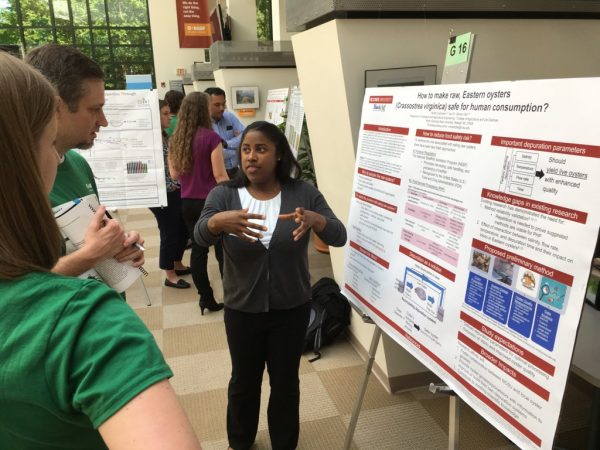 Campbell’s research is funded in part by the William White Fund of the North Carolina Agricultural Foundation, the North Carolina Sea Grant and the United States Department of Agriculture National Institute of Food and Agriculture (USDA NIFA). Additionally, she received received a Graduate School doctoral writing fellowship.
Campbell’s research is funded in part by the William White Fund of the North Carolina Agricultural Foundation, the North Carolina Sea Grant and the United States Department of Agriculture National Institute of Food and Agriculture (USDA NIFA). Additionally, she received received a Graduate School doctoral writing fellowship.
A report prepared for the Albemarle-Pamlico National Estuary Partnership found that for every $1 invested in NC’s habitat enhancement activities provides $4.05 in benefits.
“Right now, my research is strictly a novel method prototype. It hasn’t been scaled up for industry yet, but we hope that it will be cost effective,” Campbell says. “What we’re looking at is improving the food safety of raw oysters. Because right now, if you have oysters that are contaminated with fecal coliform, E. coli or even Vibrios, they can cause sickness in human consumers.”
For the Love of Food
Originally from Metro-Atlanta, Georgia, Campbell is a first-generation college graduate. She holds a Bachelor of Science in chemistry from Norfolk State University (NSU), a Master of Science in biological and agricultural engineering from Louisiana State University (LSU) and now a Ph.D. from NC State in biological and agricultural engineering.
Throughout her academic and professional career, she has had an underlying passion for all things food. Inspired by Alton Brown’s reality show Good Eats, she briefly studied food science at Ohio State University before working in a Virginia-based food processing company. From there, she studied under Professor Subramaniam Sathivel, an expert in food process engineering at LSU, and then to NC State for doctoral research in oyster depuration processing.
“I like the interdisciplinary aspect of the [biological and agricultural] studies. The fact that I can combine biological engineering with food science and process engineering, and even some food safety aspects,” Campbell says. “My research uses some of my chemistry background as well.”
Campbell has been active in the American Society of Agricultural and Biological Engineers (ASABE) throughout her doctoral studies. She was the winner of the 2021 Annual International Meeting Ethics Essay competition and a recipient of the John C. Nye Graduate Fellowship. “Membership in ASABE and BIPOC [Black, Indigenous and people of color] group connected me with mentors Dr. Oladiran Fasina and Dr. Alicia Modenbach,” she says. “Dr. Modenbach would meet with me monthly and we would talk about Ph.D. life, professional development, work-life balance, and academia. She is a very encouraging help to me.”
While at NC State, she served on the board for the Underrepresented STEM Graduate Student Association (US-GSA), served as Secretary of the Department of Biological and Agricultural Engineering’s GSA, and was the 2020 recipient of the A.M. Witherspoon Graduate Scholarship Endowment through the Black Alumni Society.
Campbell was surprised to learn that she was the first Black female Ph.D. graduate from the department. “I hope this is just the beginning of a growing tradition,” she says. “And more Black men and women come through this program.” She believes strengthening partnerships with Historically Black Colleges and Universities (HBCUs) will bring awareness to niches of sciences, engineering and other STEM disciplines to other underrepresented students.
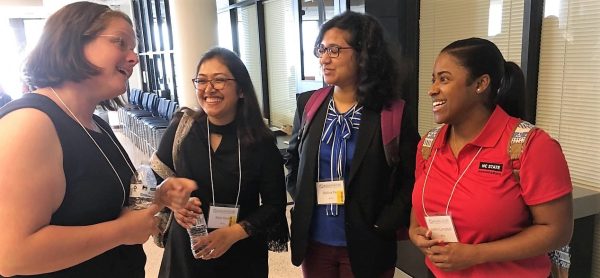 “Vashti is a fantastic engineer with an incredibly bright future in front of her. She is a wonderful role model and mentor for all graduate students in our department, and I hope to engage her in our department in numerous ways moving forward,” says BAE Professor and Department Head Garey Fox. “We need her input about how our department can continuously improve. Her success will help strengthen connections with our HBCUs and highlight pathways for underrepresented students to receive advanced degrees in Biological & Agricultural Engineering.”
“Vashti is a fantastic engineer with an incredibly bright future in front of her. She is a wonderful role model and mentor for all graduate students in our department, and I hope to engage her in our department in numerous ways moving forward,” says BAE Professor and Department Head Garey Fox. “We need her input about how our department can continuously improve. Her success will help strengthen connections with our HBCUs and highlight pathways for underrepresented students to receive advanced degrees in Biological & Agricultural Engineering.”
Campbell credits her faith in Jesus and the support of her family and friends, Hall and other mentors, as well as her peers, specifically those in BAE and the department of Food, Bioprocessing and Nutrition Sciences, with helping her reach this academic milestone. “I am grateful for all of their support. I could not have achieved this milestone without their help!”
In October, she will join a consulting firm in Washington D.C. where she will be involved in their chemical regulation and food safety practice.

